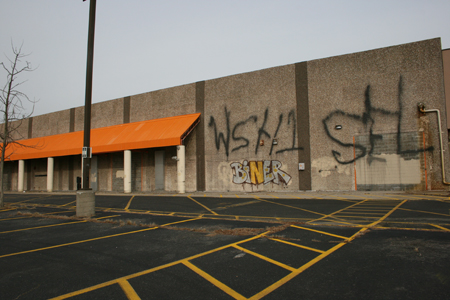“Dark Store” Case Makes Its Way to the Michigan Supreme Court
The city says the home improvement store Menards is dodging taxes.


The city of Escanaba is taking on big box stores in the Michigan Supreme Court. The city says the home improvement store Menards is dodging taxes.
It’s called the “dark store” loophole, and it’s been used more often in recent years by the Michigan Tax Tribunal when assessing property taxes.
It determines property taxes for fully-functioning retailers like Target and Wal-Mart based on nearby empty stores.
Jack Van Coevering is the attorney for the city of Escanaba – which is going up against the home improvement chain Menards. He said the city wants the big box stores to be taxed like other stores.
“Fundamentally there’s a fairness issue that local retailers are being taxed at a much, much higher per-square-foot value than these big box stores,” he said.
The strategy not only gives incentive to retailers to keep vacant stores, it also cuts into the pockets of local governments, Van Coevering said, particularly in more rural areas.
“It has significant impact to other U.P. communities that have a tax base that is largely somewhat small because huge tracks of land are federally owned or state owned and can’t be taxed,” he said. “For a lot of local units this is the difference between a library being open on Saturday.”
Michigan Senator Tom Casperson has said he plans to reintroduce legislation to prevent big box stores from appealing their tax assessments to the Michigan Tax Tribunal. It’s the tribunal that has been allowing retailers to lower their assessments with this strategy in recent years.
